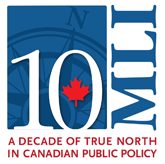Some Canadian social media users have taken to social media to protest Canada’s 2021 census that could lead to broader census “hesitancy”. Recent posts question the privacy of the questionnaire while others seek to make political statements by refusing to comply with Canadian legislation that requires all Canadian residents to complete the census questionnaire.

One Twitter user claimed to have thrown “my census in the trash” while another declared that they were “not going to fill it out in protest to the Liberals.
A Facebook user posted on anti-lockdown group that they “respectfully declined to fill out personal information” because they felt this was “an invasion of privacy.”

Users who posted about their refusal to complete the 2021 census may not be aware that all Canadian residents are legally required to complete the census. Those who are aware of their legal obligations, may justify their refusal as a form of civil disobedience. However, such public declarations on social media may inspire others to follow suit and could provoke broader census “hesitancy” leading to less accurate statistical results.
All Canadian residents are required to complete the census questionnaire, according to the Statistics Act. According to Statistics Canada, “Statistics Canada pays full attention to the protection outlined in the Charter of Rights and Freedoms and the Statistics Act. Judicial rulings on this issue have confirmed that the census does not contravene the Charter.”
The Census website features a significant amount of information regarding the security of the Census system. Private details are indeed being transmitted from home computers to the government’s servers and Canadians should expect the highest level of security with regards to their data and the handling of it by Statistics Canada.
Completed questionaries are only seen by “Statistics Canada employees with a need to know and whose job requires them to work with” them. Each questionnaire is “subject to the confidentiality provisions of the Statistics Act. All Statistics Canada employees take an oath of secrecy, which is in effect for life—even after employment has ended.”
Statistics Canada states that they have employed the following safeguards:
- Strong encryption technologies to ensure security of data passing between respondents’ computers and the web servers. Transport Layer Security (also known as TLS) enhances the privacy of the information passing between a respondent’s browser and Statistics Canada’s servers. This protocol provides a safe passage for transmitting and authenticating data by encrypting the information. Access to data cannot be compromised when TLS is in use.
- Data submitted to the web servers are encrypted before being stored and remain encrypted until they are transferred to the high security internal network.
- Census data are processed and stored on a high-security internal network.
- Powerful firewalls, intrusion detection and stringent access control procedures limit access to back-end systems and databases. Census employees who have proper authorization and who have affirmed an oath of secrecy can access census data, but only from secure locations.

